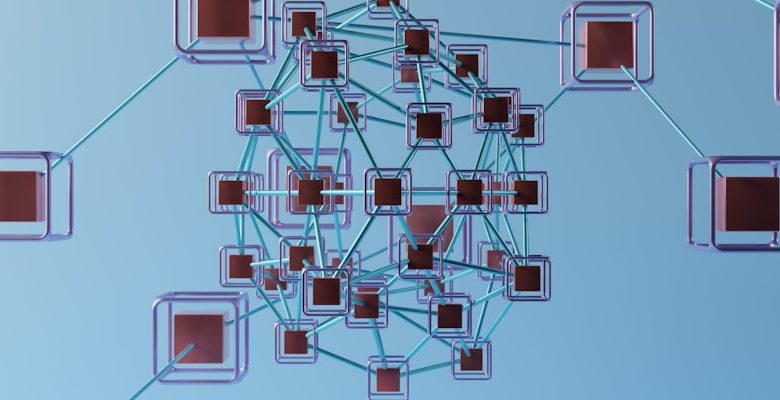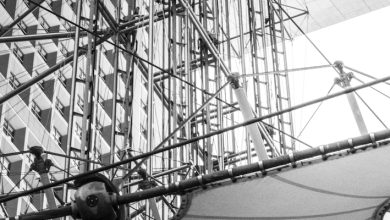The Role of Oracles in Decentralized Ecosystems

- Understanding the Importance of Oracles in Decentralized Ecosystems
- How Oracles Bridge the Gap Between Blockchain and Real-World Data
- Challenges and Solutions in Implementing Oracles in Decentralized Networks
- The Evolution of Oracles in the Cryptocurrency Space
- Oracles: The Key to Unlocking the Full Potential of Decentralized Applications
- Exploring the Various Types of Oracles and Their Functions in Decentralized Ecosystems
Understanding the Importance of Oracles in Decentralized Ecosystems
In decentralized ecosystems, oracles play a crucial role in providing external data to smart contracts. Oracles act as intermediaries that fetch real-world information and feed it into blockchain networks. This ensures that decentralized applications can make informed decisions based on accurate and up-to-date data.
Oracles are essential for enabling a wide range of use cases, from decentralized finance (DeFi) to supply chain management. By connecting blockchains to the external world, oracles expand the capabilities of decentralized systems and enhance their utility. Without oracles, smart contracts would be limited to executing predefined actions without access to real-time information.
One of the key benefits of oracles is their ability to bring trustlessness to decentralized applications. By providing verifiable data from reputable sources, oracles help to mitigate the risk of fraud and manipulation. This is especially important in financial applications where transparency and reliability are paramount.
Overall, the importance of oracles in decentralized ecosystems cannot be overstated. They act as the bridge between blockchains and the real world, enabling smart contracts to interact with external data in a secure and reliable manner. As the adoption of decentralized technologies continues to grow, the role of oracles will become even more critical in ensuring the efficiency and integrity of decentralized systems.
How Oracles Bridge the Gap Between Blockchain and Real-World Data
Oracles play a crucial role in connecting blockchain technology with real-world data, acting as intermediaries that retrieve and verify off-chain information. This functionality is essential for decentralized ecosystems to access external data sources and make informed decisions based on accurate and reliable data. By bridging the gap between the blockchain and real-world information, oracles enable smart contracts to execute actions triggered by external events, such as weather conditions, stock prices, or sports outcomes. This integration of external data into blockchain networks enhances their utility and opens up a wide range of possibilities for decentralized applications.
Oracles come in various forms, ranging from centralized to decentralized solutions, each with its own set of advantages and limitations. Centralized oracles rely on a single entity to provide data, which may raise concerns about data manipulation or censorship. On the other hand, decentralized oracles leverage multiple sources to validate information, increasing the reliability and security of the data feed. However, decentralized oracles may face challenges related to data accuracy and consensus mechanisms.
Despite these challenges, the role of oracles in decentralized ecosystems is becoming increasingly important as the demand for real-world data integration grows. With the ability to securely fetch and deliver external information to blockchain networks, oracles empower smart contracts to interact with the physical world, enabling a new wave of decentralized applications across various industries. As blockchain technology continues to evolve, the reliance on oracles to bridge the gap between on-chain and off-chain data will only increase, highlighting their critical role in the decentralized landscape.
Challenges and Solutions in Implementing Oracles in Decentralized Networks
Implementing oracles in decentralized networks poses several challenges that need to be addressed for the ecosystem to function effectively. One major challenge is the issue of trust, as oracles act as intermediaries between off-chain data and on-chain smart contracts. This reliance on external data sources can introduce vulnerabilities and potential points of failure in the system.
Another challenge is the risk of data manipulation or inaccuracies from centralized oracles. Since decentralized networks aim to eliminate single points of failure, relying on centralized oracles goes against this principle. This can compromise the integrity and reliability of the data being fed into the network, leading to incorrect outcomes and decisions.
To address these challenges, several solutions have been proposed in the decentralized ecosystem. One solution is the use of multiple oracles to provide redundancy and cross-verification of data. By relying on consensus from multiple independent oracles, the network can reduce the risk of data manipulation and increase the overall trustworthiness of the information.
Another solution is the use of reputation systems to incentivize oracles to provide accurate data. By rewarding or penalizing oracles based on the accuracy of their data feeds, the network can encourage honest behavior and discourage malicious actors from manipulating the system. This helps maintain the integrity of the data and ensures the reliability of the network as a whole.
The Evolution of Oracles in the Cryptocurrency Space
Oracles have played a crucial role in the evolution of decentralized ecosystems, particularly in the realm of cryptocurrencies. These entities act as bridges between the blockchain and real-world data, providing smart contracts with the information they need to execute without relying on centralized sources.
Initially, oracles were simple and centralized, posing a risk to the security and integrity of decentralized applications. However, as the cryptocurrency space matured, the need for more reliable and decentralized oracles became evident. This led to the development of decentralized oracles that leverage multiple data sources and consensus mechanisms to ensure the accuracy of the information provided.
With the rise of decentralized finance (DeFi) applications, the demand for secure and reliable oracles has surged. Projects like Chainlink have emerged as leaders in the oracle space, offering a decentralized network of nodes that source and verify external data before delivering it to smart contracts.
Oracles: The Key to Unlocking the Full Potential of Decentralized Applications
Oracles play a crucial role in decentralized ecosystems by acting as the bridge between blockchain networks and external data sources. They are the key to unlocking the full potential of decentralized applications (dApps) by providing them with real-world information that they cannot access on their own.
Oracles essentially serve as data carriers, fetching information from off-chain sources such as APIs, IoT devices, and other external databases, and delivering it to smart contracts on the blockchain. This enables dApps to interact with the outside world, making them more versatile and practical for a wide range of use cases.
By utilizing oracles, dApps can access a wealth of information, including market prices, weather data, sports scores, and more. This data can then be used to trigger automated actions within the smart contracts, such as executing trades, settling bets, or triggering IoT devices.
Without oracles, dApps would be limited to the data stored on the blockchain itself, severely restricting their functionality and potential impact. By leveraging oracles, developers can create more dynamic and responsive decentralized applications that can truly revolutionize various industries.
Overall, oracles play a vital role in expanding the capabilities of decentralized ecosystems, enabling dApps to tap into the vast resources of the external world and operate more efficiently and effectively. As the demand for decentralized applications continues to grow, the importance of oracles in facilitating their development and success will only increase.
Exploring the Various Types of Oracles and Their Functions in Decentralized Ecosystems
In decentralized ecosystems, various types of oracles play a crucial role in providing external data to smart contracts. Oracles act as bridges between the blockchain and the real world, enabling smart contracts to execute based on real-time information. Understanding the different types of oracles and their functions is essential for ensuring the accuracy and reliability of decentralized applications.
One common type of oracle is a centralized oracle, which relies on a single source of data. While centralized oracles are easy to implement, they are vulnerable to manipulation or failure. On the other hand, decentralized oracles aggregate data from multiple sources, making them more secure and resistant to tampering. Decentralized oracles can use various consensus mechanisms to validate data, such as staking, voting, or reputation-based models.
Another type of oracle is a hardware oracle, which connects the blockchain to the physical world through sensors or IoT devices. Hardware oracles can provide data on real-world events, such as temperature, location, or inventory levels. This data is crucial for applications in industries like supply chain management, logistics, or healthcare.
A third type of oracle is a software oracle, which gathers data from online sources, APIs, or external databases. Software oracles can provide information on financial markets, weather forecasts, sports scores, or any other data that smart contracts may need. By using software oracles, developers can create more versatile and dynamic decentralized applications.
Overall, oracles play a vital role in decentralized ecosystems by enabling smart contracts to interact with external data. By exploring the various types of oracles and their functions, developers can design more robust and reliable decentralized applications that are capable of responding to real-world events in a secure and efficient manner.



